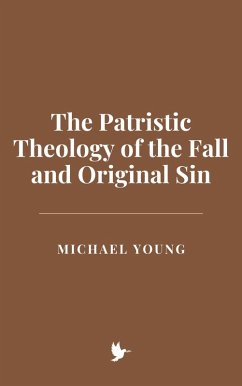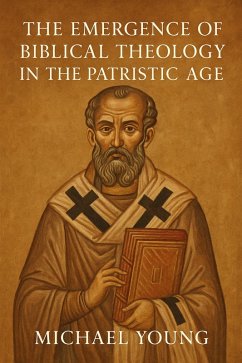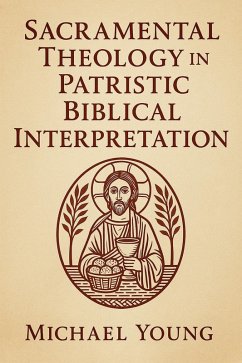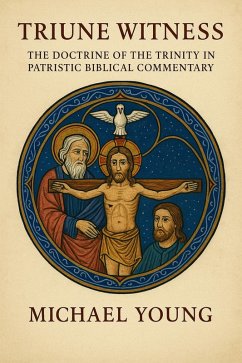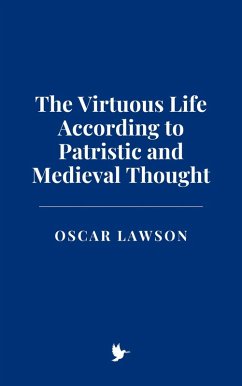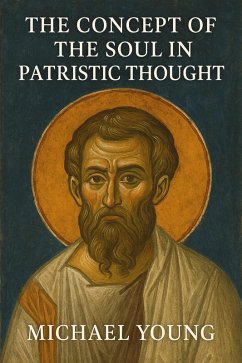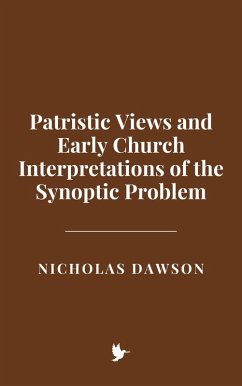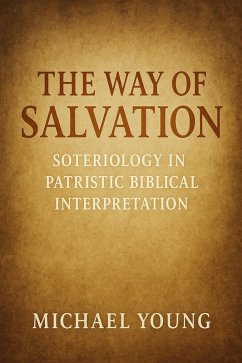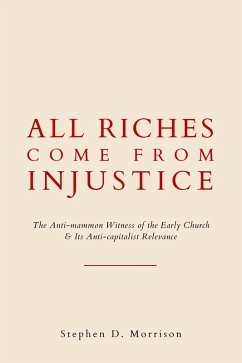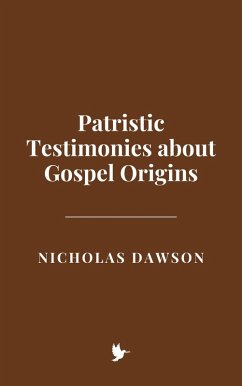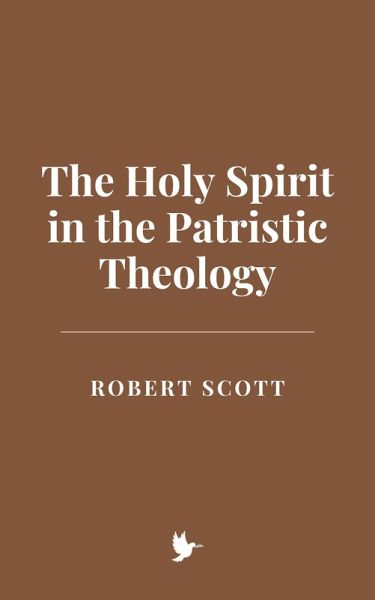
The Holy Spirit in the Patristic Theology (eBook, ePUB)

PAYBACK Punkte
0 °P sammeln!
This study offers a comprehensive exploration of the doctrine of the Holy Spirit within Patristic theology, tracing its development across the early Christian centuries. The work examines the integral role of the Holy Spirit in Trinitarian thought, Christology, ecclesiology, and the spiritual life, as articulated by key figures such as Irenaeus of Lyons, Origen of Alexandria, Athanasius of Alexandria, the Cappadocian Fathers, Augustine of Hippo, and Cyril of Alexandria. Through deep analysis of primary sources, including treatises, homilies, and creedal formulations, this research highlights t...
This study offers a comprehensive exploration of the doctrine of the Holy Spirit within Patristic theology, tracing its development across the early Christian centuries. The work examines the integral role of the Holy Spirit in Trinitarian thought, Christology, ecclesiology, and the spiritual life, as articulated by key figures such as Irenaeus of Lyons, Origen of Alexandria, Athanasius of Alexandria, the Cappadocian Fathers, Augustine of Hippo, and Cyril of Alexandria. Through deep analysis of primary sources, including treatises, homilies, and creedal formulations, this research highlights the theological debates that shaped early Christian pneumatology, particularly in response to heresies such as Arianism, Pneumatomachianism, and Montanism.
The chapters explore key themes such as the Spirit's role in creation, sanctification, prophecy, and deification (theosis), emphasizing the Spirit's indwelling presence as the source of divine life and grace. The study also underscores the eschatological dimension of the Holy Spirit, portraying the Spirit as the "pledge" and "firstfruits" of the believer's resurrection and the renewal of creation. Liturgical texts, such as the epiclesis in the Eucharistic prayers, further demonstrate how the early Church experienced the Spirit in worship as the sanctifier of both the sacramental elements and the faithful.
This work concludes that Patristic pneumatology is not a static set of doctrines but a dynamic and evolving tradition that centers on the Spirit's unifying, illuminating, and life-giving role in the divine economy. By situating the Holy Spirit at the heart of Christian theology and spiritual experience, the early Fathers provided a theological framework that continues to shape contemporary Christian thought and practice.
The chapters explore key themes such as the Spirit's role in creation, sanctification, prophecy, and deification (theosis), emphasizing the Spirit's indwelling presence as the source of divine life and grace. The study also underscores the eschatological dimension of the Holy Spirit, portraying the Spirit as the "pledge" and "firstfruits" of the believer's resurrection and the renewal of creation. Liturgical texts, such as the epiclesis in the Eucharistic prayers, further demonstrate how the early Church experienced the Spirit in worship as the sanctifier of both the sacramental elements and the faithful.
This work concludes that Patristic pneumatology is not a static set of doctrines but a dynamic and evolving tradition that centers on the Spirit's unifying, illuminating, and life-giving role in the divine economy. By situating the Holy Spirit at the heart of Christian theology and spiritual experience, the early Fathers provided a theological framework that continues to shape contemporary Christian thought and practice.
Dieser Download kann aus rechtlichen Gründen nur mit Rechnungsadresse in A, B, CY, CZ, D, DK, EW, E, FIN, F, GR, H, IRL, I, LT, L, LR, M, NL, PL, P, R, S, SLO, SK ausgeliefert werden.




